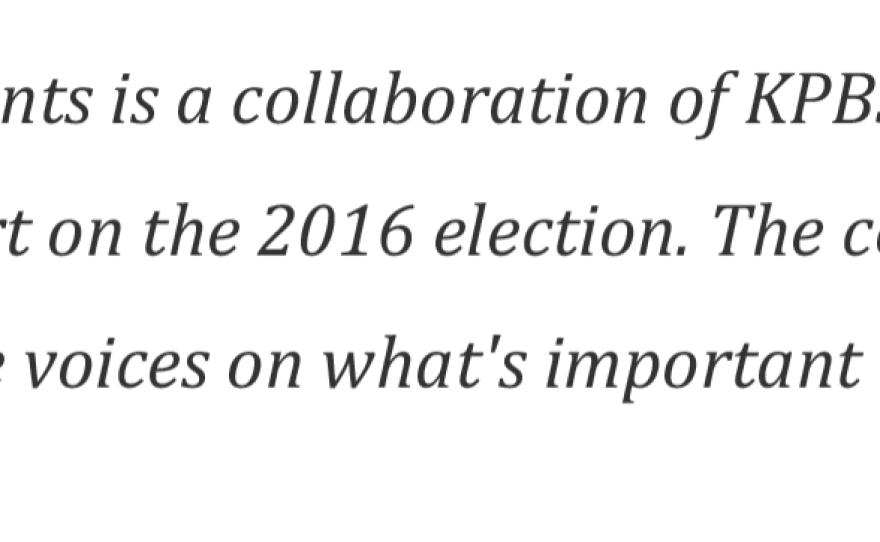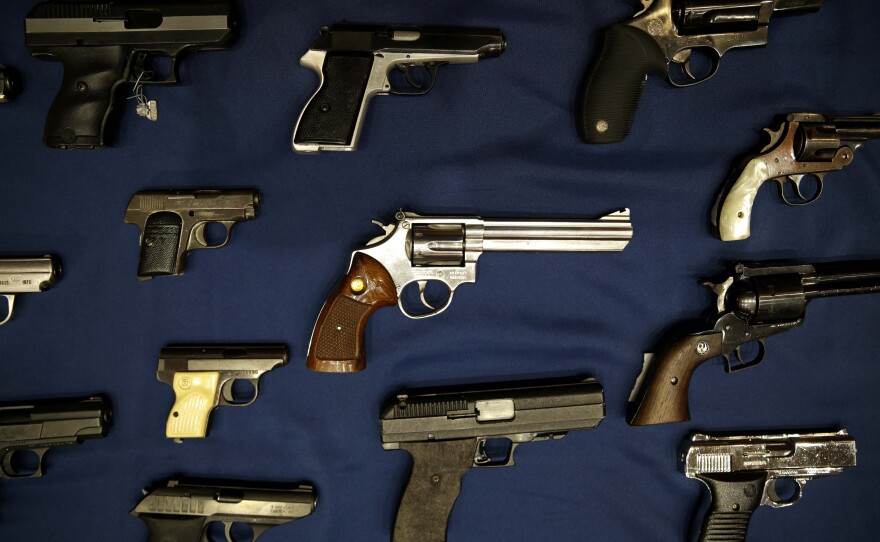California voters could be asked this fall to approve new statewide gun restrictions if an initiative championed by Lt. Gov. Gavin Newsom qualifies for the ballot. Some California cities aren't waiting to enact a key provision of the law — a ban on possessing magazines capable of holding more than 10 rounds.
But it's hard to measure what, if any, difference these so-called high-capacity magazine bans make in curbing day-to-day gun violence common on the streets of major California cities. The state has banned the sale and import of such magazines since 2000, but any owned before that are grandfathered in. Newsom's initiative would ban their possession, and anyone who owns an 11-plus round magazine would be required to get rid of it within about nine months or be guilty of a crime.
"In 2015, there was definitely a resurgence of interest," said Allison Anderman, an attorney at the San Francisco-based Law Center to Prevent Gun Violence. The organization advises local governments on gun restrictions.
Anderman said the mass shooting in which Rizwan Farook and Tashfeen Malika killed 14 people and injured 22 others in San Bernadino last year has driven an uptick in interest from California cities.
"We’ve seen a lot of local governments wanting to do things, especially governments we haven’t heard from in a while," she said.
But experts and law enforcement can't point to any actual impact: no magazines turned in, and none seized as a direct result of the local large-magazine bans on the books.
"The fact that these laws may be difficult to enforce in some cases is not an argument against enacting them," Anderman said, "if they are laws that have the potential to have an impact."
Reliable statistics on guns and gun violence are hard to come by in the U.S.
"One of the other issues with determining the efficacy of local regulations is of course the prohibition against federal funding on researching gun violence," UC Irvine criminal justice professor George Tita said.
But he knows the numbers that are out there. Gun manufacturers in this country make around 10 million firearms every year, according to the federal Bureau of Alcohol, Tobacco, Firearms and Explosives, and all but a few hundred thousand stay in the U.S. Plus we import a few million.
A majority are handguns, and Californians — like the rest of the nation — have been buying more of those in the past few years.
That constant flow of new weapons exasperates Tita.

"There were almost a half million handguns legally purchased in the state of California last year," he said, "and a half million the year before. So, it is a little bit frustrating, but that doesn't mean that we just turn a blind eye and don’t try to do things."
Proponents of high-capacity magazine bans say limiting the number of a rounds a shooter can fire before having to reload can save lives. Opponents say these kinds of laws will only punish law-abiding gun owners, so their impact on violence is moot.
Either way, it's hard to tell if penalties under the ordinances aren't enforced. Simply possessing a magazine that can carry more than 10 rounds is a misdemeanor, in all four cities and under Newsom's proposed law. Punishment for breaking the law can include short stints in jail, a fine or both. But misdemeanor charges typically pale in comparison to the felonies prosecutors can charge if someone is caught with an illegal magazine while committing another crime.
"The fact that it’s a misdemeanor doesn’t make it something that doesn’t have a consequence," said Alameda County District Attorney Nancy O'Malley, who supports Oakland's recently enacted high-capacity magazine ban.
"The misdemeanor does allow us to take the guns away," she said. "It allows us to destroy guns, or in this case, magazines. We have a great capacity to stop someone from going further, and if they do go further, then we have the misdemeanor conviction to be more effective in prosecuting them the next time."
Lawsuits Likely
Passing local firearms regulations almost guarantees a city will face a lawsuit.
Ordinances in San Francisco, Sunnyvale and Los Angeles have all faced legal challenges that are still playing out through state and federal courts, and California's branch of the National Rifle Association has threatened litigation against Oakland.
Anderman said those challenges are overwhelmingly defeated.
"The gun lobby tries to intimidate local governments by bringing frivolous lawsuits because they know that local governments are cash-strapped," she said. "But insofar as the gun lobby has challenged those laws, they've lost."
It's hard to say what will happen if California voters enact a ban on possessing high-capacity magazines statewide. Gun owner groups are focused right now on defeating the ballot measure. But if it passes, expect a well-funded legal fight based on federal law.
Copyright 2016 KQED. To see more election coverage, visit kqed.org/election2016.








